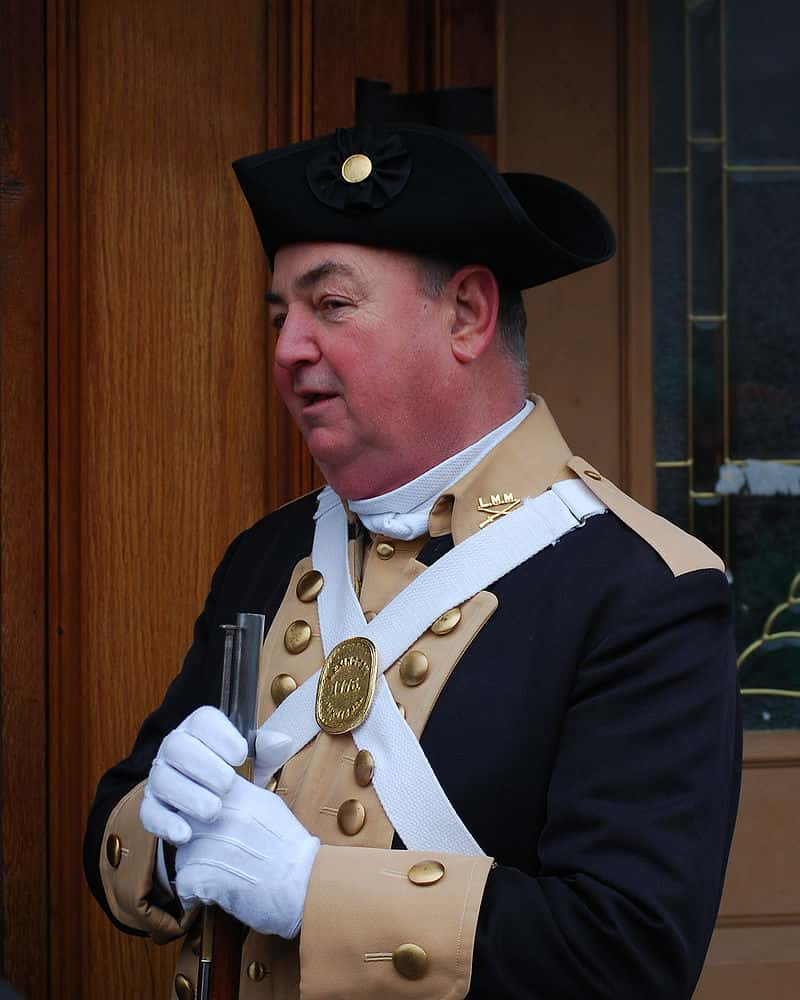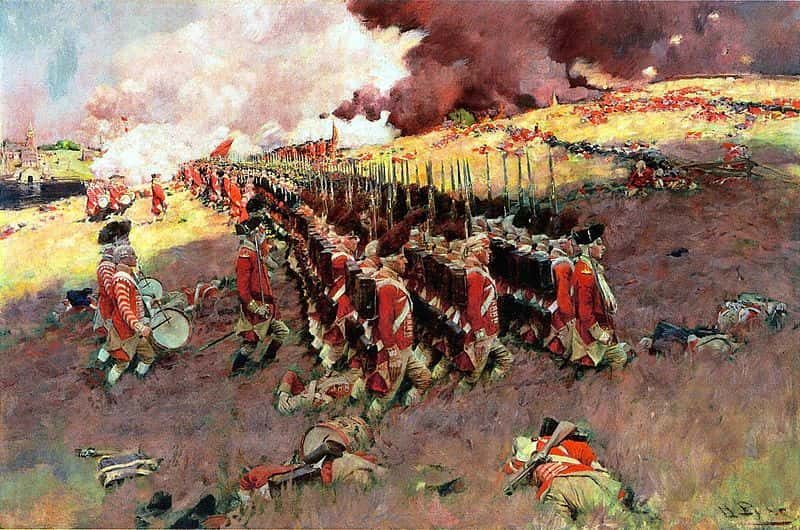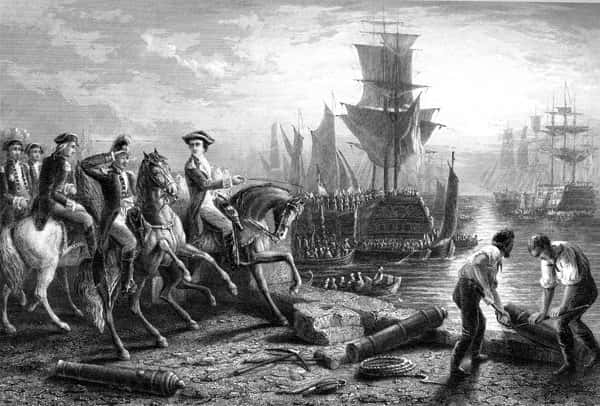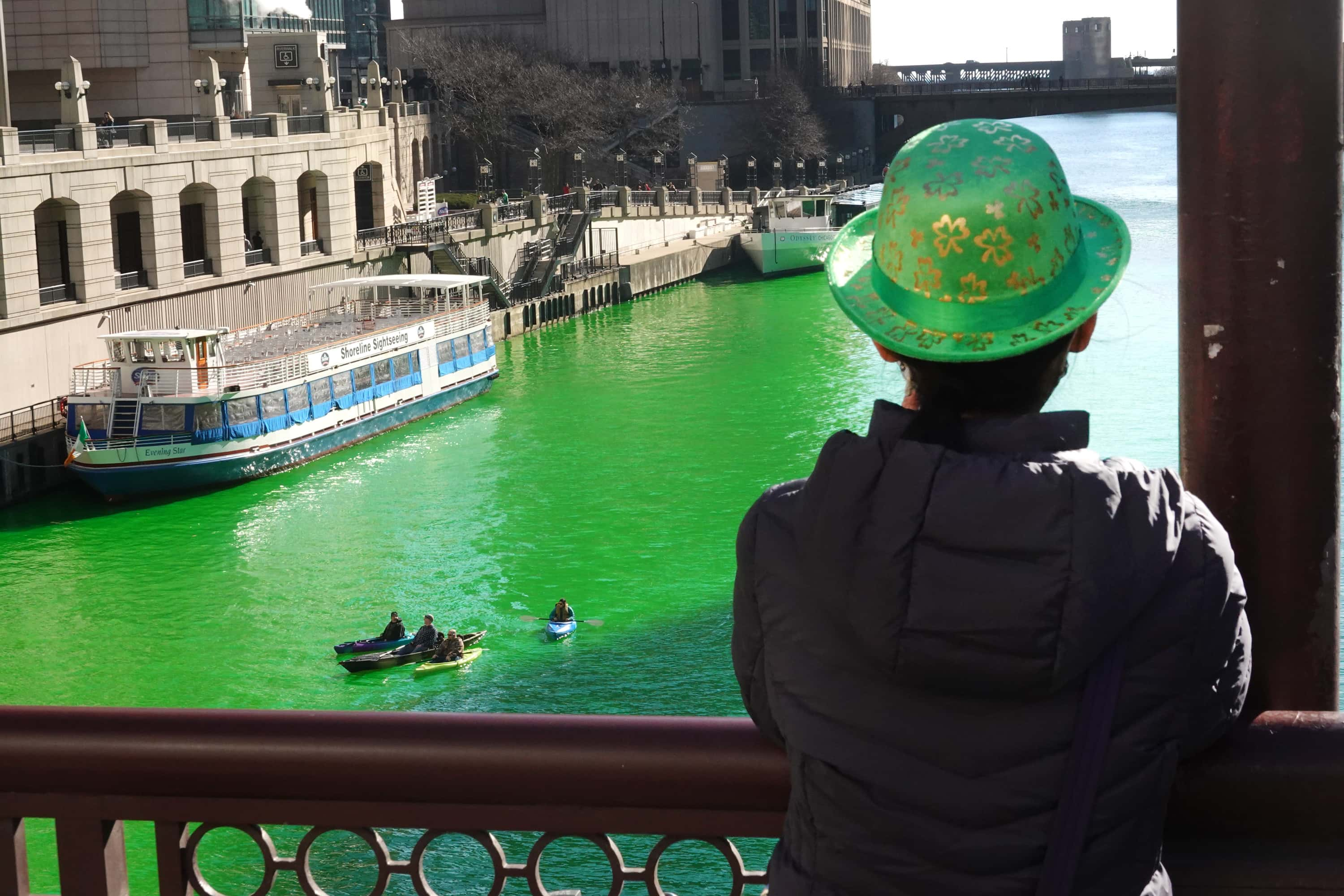Explained: What is Evacuation Day in Massachusetts? History of British Army evacuation from Boston on March 17

St Patrick's Day isn't the only holiday observed on March 17. Suffolk County, Massachusetts, has another reason to celebrate. Evacuation Day marks the evacuation of British troops from the area and commemorates George Washington's victory in the American Revolutionary War. The victory was a huge morale boost for the Thirteen Colonies, like Boston, the city, where the rebellion began was the first to be liberated.
In what may seem like some fortuitous, happy coincidence, the Irish Catholics in America are remembered on their patron saint's feast day for their efforts in helping Washington defeat the British soldiers. Here's what's to know.
RELATED ARTICLES
Three teens die following horrific stampede during St Patrick's Day celebrations in Northern Ireland

What is Evacuation Day in Massachusetts?
Evacuation Day in Massachusetts remembers the first major American military victory in the American Revolutionary War, which saw the British soldiers leave Boston on March 17, 1776, and never return. It marks the last day of the 11-month long Siege of Boston, when American militiamen effectively restrained British troops within the city of Boston, and after the Battle of Bunker Hill, to the peninsula of Charlestown, which later resulted in the city's freedom.
Schools and government offices, including some Massachusetts state government offices located in Suffolk County, are closed on the day. However, the government requires all state and municipal offices, even those in Suffolk County, to remain open. Activities on the day may include Evacuation Day re-enactments, essay contests, and visits to historically significant sites.

Morale boost: Battle of Bunker Hill
In June 1775, the British seized Bunker and Breed's Hills, from which the Continental Army, with George Washington as its Commander in Chief, were preparing to bombard the city, but their casualties were heavy and their gains were insufficient to break American hold on land access to Boston. On June 17, in the first phase of the war, the British defeated the Americans at the Battle of Bunker Hill in Massachusetts.
The battle was tactical, though somewhat Pyrrhic, a victory for the British. Patriot gunfire had cut down some 1,000 enemy troops, with more than 200 killed and more than 800 wounded. It proved to be a sobering experience for the British, and a significant confidence boost for the inexperienced Americans during the ongoing Siege of Boston. They were now convinced that patriotic dedication could overcome superior British military might.

The Siege of Boston
The Siege of Boston began on April 19, 1775, after the Battles of Lexington and Concord, when militia from surrounding communities in Massachusetts blocked land access to Boston. Patriots prevented the British Army's land movement, who were garrisoned in what was then the peninsular city of Boston, Massachusetts Bay. Although the British maintained control of Boston Harbor, provisions dwindled while they waited for supply ships to arrive.
The Siege continued as the armies lobbed shells at each other until George Washington seized and fortified Dorchester Heights, just outside Boston harbor, on the night of March 4, 1776, distracting the British soldiers’ attention. Using artillery captured by an expedition led by 25-year-old bookseller-turned-soldier Henry Knox from Fort Ticonderoga and Crown Point, Continental forces aimed cannons at British ships anchored in the harbor. Under the cover of darkness, Washington placed his artillery atop Dorchester Heights March 5, threatening Boston and the British ships in the harbor. The British commander William Howe feared another battle like Bunker Hill, and withdrew forces in Boston to the stronghold at Halifax, Nova Scotia, on March 17.

The Irish role: 'An Interposition by Providence'
March 17, 1776, was a great day for the Boston Irish, and St Patrick's Day wasn't the only reason. As thousands of Loyalist (British) troops sailed out of the harbor in utter defeat on March 17, 1776, Bostoners laughed, cried, and gathered to play the traditional 'St.Patrick's Day in the Morning'. It was a momentous day for the Irish immigrant volunteers of Washington's newly formed Revolutionary army.
Furthermore, the British evacuated the city on that day all at once, peacefully, without any need for cannons or casualties. George Washington called the event an 'Interposition by Providence', and the people of Irish heritage in Boston attributed it to the grace of St Patrick, and his feast day became even more of an occasion.
Estimates according to History, state that one-quarter or more of the Continental Army was Irish by birth or ancestry, and that regiments from Pennsylvania and Maryland were nearly half-Irish. To this day, many residents in Suffolk County are of Irish descent.
Hundreds of thousands of Irish first emigrated to America in the 1840s and 1850s following the Potato Famine of the late 1840s, one of the greatest human tragedies of the 19th century, during which time the Irish received no support from the government of the United Kingdom. More than one million Irish people had died.










